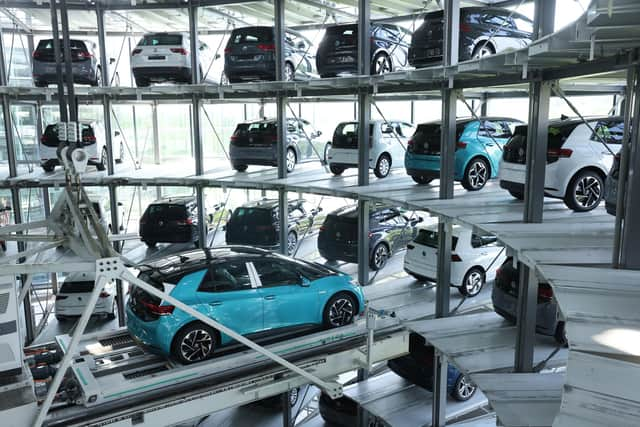Electric vehicles are coming quicker than you might think – Dr Richard Dixon
Watch any city street and you cannot help but notice that Teslas are now commonplace, some delivery vans proudly boast that they are all-electric, and a range of other electric vehicles, from cars to double-decker buses, are growing in numbers.
EVs are taking off in a big way. Car sales in the UK increased by 40 per cent last year with around one in four new ones being pure electric or hybrid electric. The leading European country is Norway, with almost four out of five of all new cars being electric last year.
Advertisement
Hide AdAdvertisement
Hide AdThe UK and Scottish governments plan to ban sales of petrol and diesel cars by 2030, with the Scottish target also including vans. The EU is aiming for 2035. Until recently forecasts predicted that 40 per cent of vehicles sold in China would be electric by 2030. It is now quite likely that level will be reached this year, seven years ahead of expectations.
The US is about to set a target of nearly 70 per cent of new vehicles to be electric by 2032, with California already aiming for 100 per cent by 2035. Even the freight industry is keen, with 44 companies from Maersk to Unilever calling on the EU to set a target of 100 per cent electric for new lorries by 2035. The low-emission zones coming into being in Scotland’s four biggest cities will also encourage individuals, bus companies, taxi fleets and delivery companies to switch to electric power.
Of course, electric cars aren’t perfect – they still crash into people, the wearing of their tyres creates air pollution, and a car-based society is one of divided communities and built-in inequality. But electric vehicles, especially buses, taxis and final delivery vehicles, are a huge improvement over our current dependence on climate-wrecking, fossil-fuelled ones.
Fossil-fuelled vehicles will not gradually fade away over decades. There will come a tipping point, when they will disappear rapidly. Most petrol stations, as well as supermarket car parks and multi-stories, have already installed charging points. When all new cars and most cars on the road are electric, supplying the dwindling number of fossil-fuelled cars and vans will become very expensive, with rising prices for the much smaller quantities of petrol and diesel still being sold, and pumps being removed to make way for more profitable uses of the land, especially charging points.
Drivers of early electric vehicles used to suffer from ‘range anxiety’ – the worry that you will run out of charge before you get to your destination or to a charging point. Ironically, this phenomenon will start to hit fossil-fuelled drivers as fewer and fewer ‘petrol stations’ actually sell petrol and diesel any more.


In the end, fossil-fuelled vehicles will not disappear because government’s ban them, but because there will be fewer and fewer places to fill them up with increasingly expensive legacy fuels. The only question is how quickly this will happen.
Dr Richard Dixon is an environmental campaigner and consultant
Comments
Want to join the conversation? Please or to comment on this article.